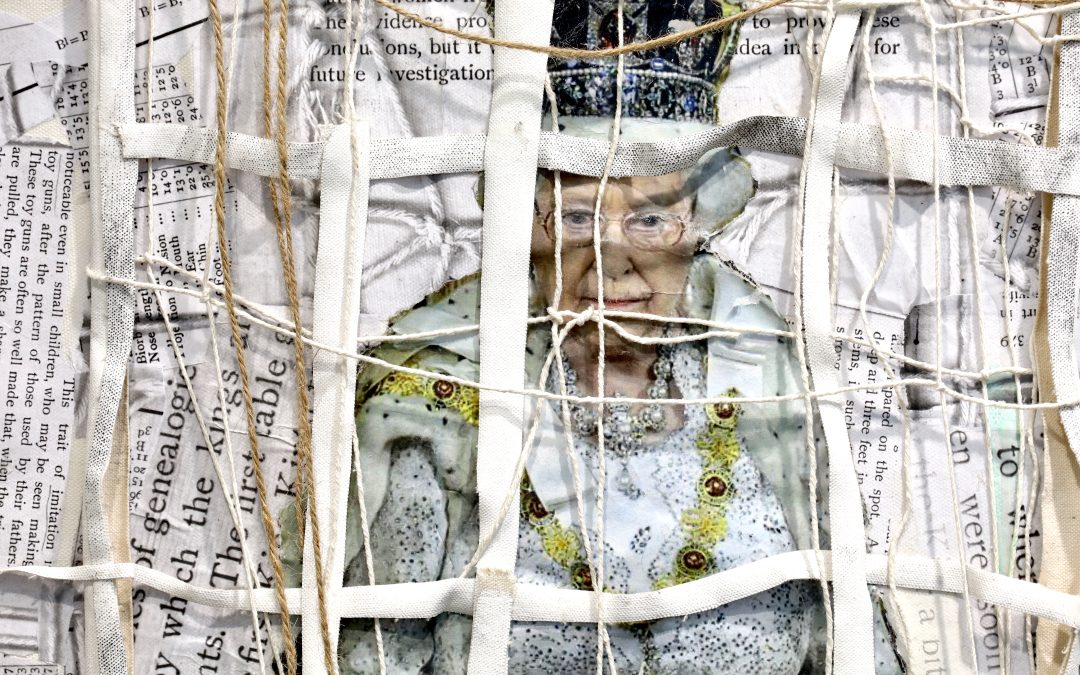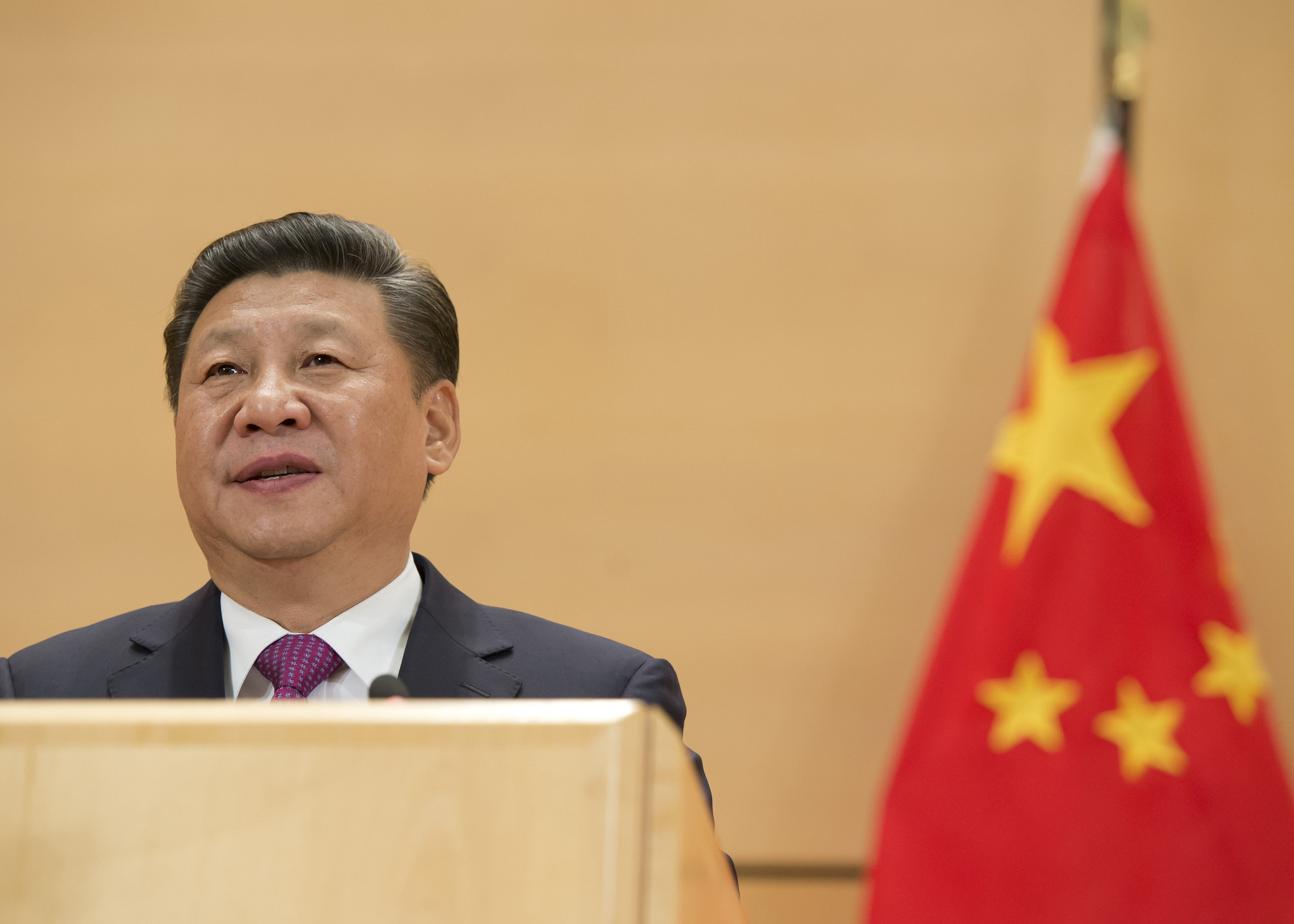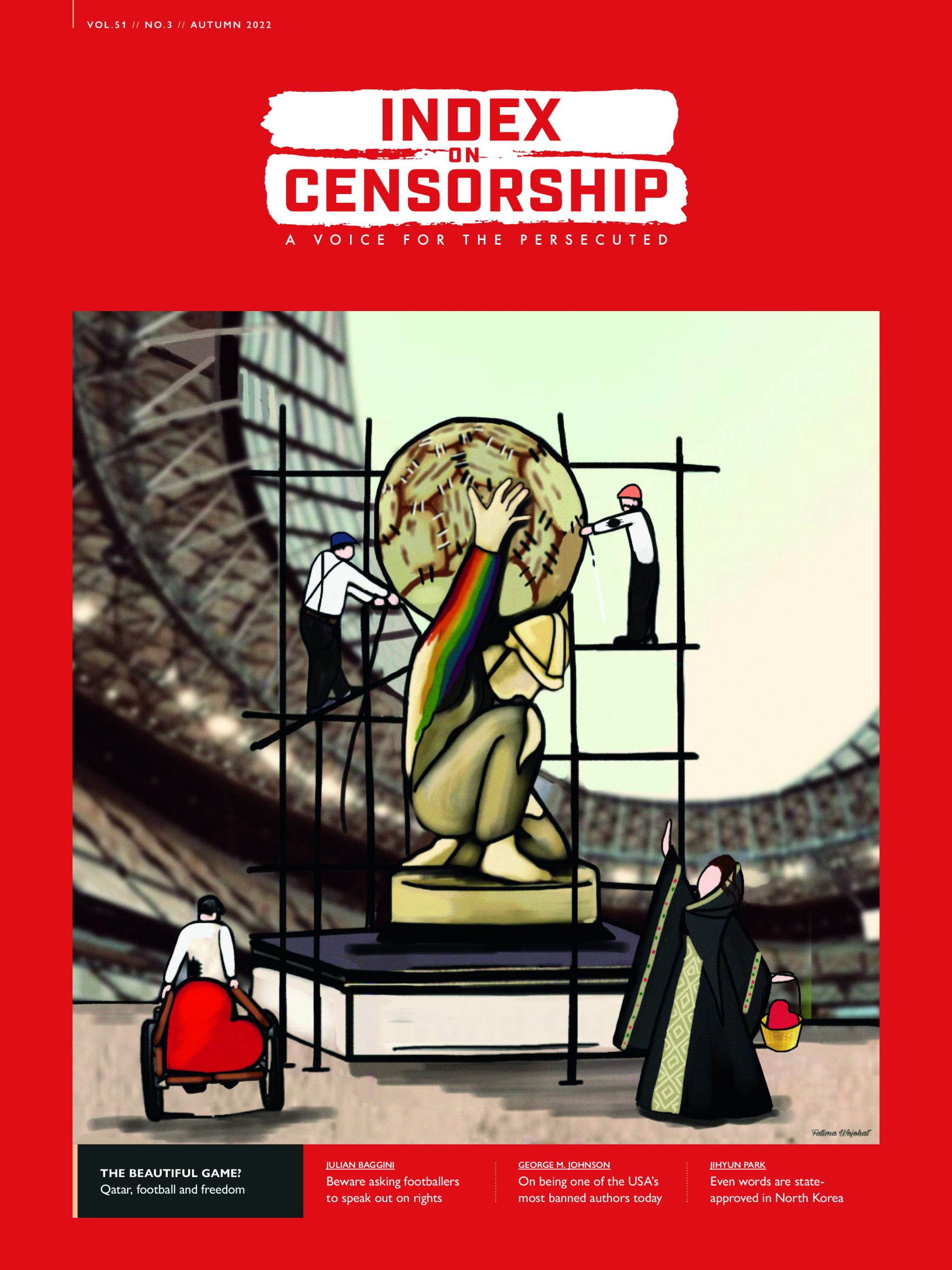We trawled through hundreds of blocked archives on the UK Royal Family to present a flavour of what is off limits


We trawled through hundreds of blocked archives on the UK Royal Family to present a flavour of what is off limits

The winter issue of Index takes as its central theme the censorship of British royal history.

Volume 51.04 Winter 2022

The Iranian team’s defiant stand against oppression at the World Cup in Qatar puts everyone else to shame

Football fans turned out in large numbers during the Gezi Park protests in Istanbul. They’ve paid the price since

China’s leader is football mad and he has put the sport at the forefront of many initiatives. When it comes to the nation’s freedoms that’s been a mixed blessing

Do sports stars have a duty to be politically active? A leading philosopher argues that the responsibility lies elsewhere

What do you know about the intersection of human rights and football? Take our quiz and find out

The autumn issue of Index takes as its central theme the FIFA World Cup that will take place in Qatar in November and December 2022. A country where human rights are constantly under threat, Qatar is under the spotlight and many are calling for a...

Volume 51.03 Autumn 2022
A quarterly journal set up in 1972, Index on Censorship magazine has published oppressed writers and refused to be silenced across hundreds of issues.
The brainchild of the poet Stephen Spender, and translator Michael Scammell, the magazine’s very first issue included a never-before-published poem, written while serving a sentence in a labour camp, by the Soviet dissident Aleksandr Solzhenitsyn, who went on to win a Nobel prize later that year.
The magazine continued to be a thorn in the side of Soviet censors, but its scope was far wider. From the beginning, Index declared its mission to stand up for free expression as a fundamental human right for people everywhere – it was particularly vocal in its coverage of the oppressive military regimes of southern Europe and Latin America but was also clear that freedom of expression was not only a problem in faraway dictatorships. The winter 1979 issue, for example, reported on a controversy in the United States in which the Public Broadcasting Service had heavily edited a documentary about racism in Britain and then gone to court attempting to prevent screenings of the original version. Learn more.